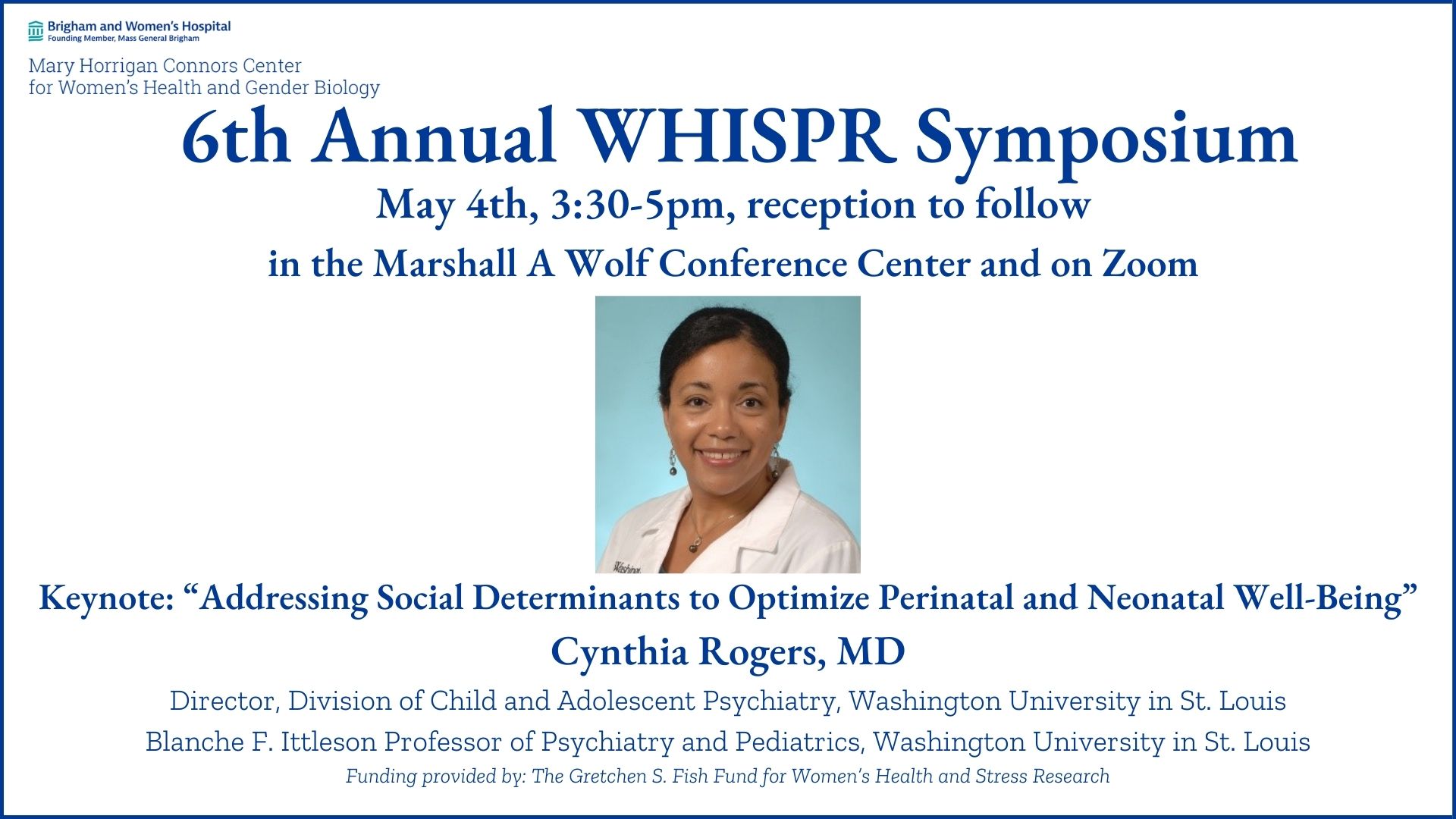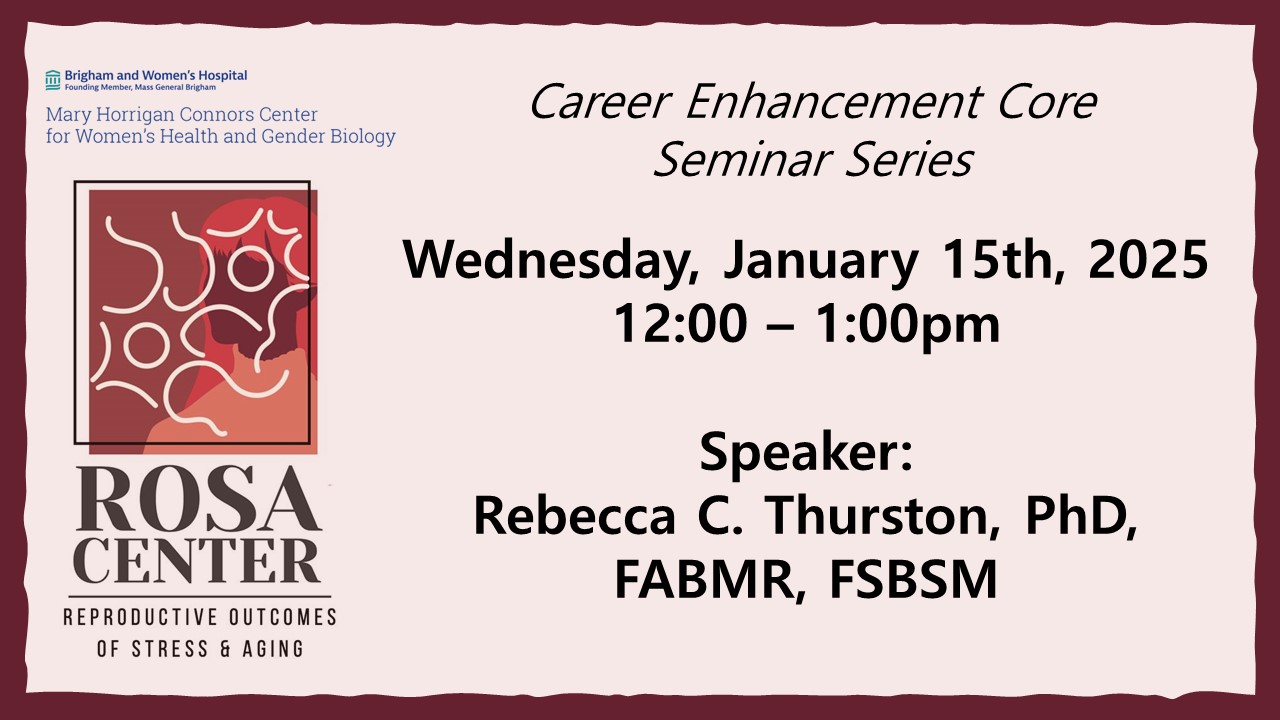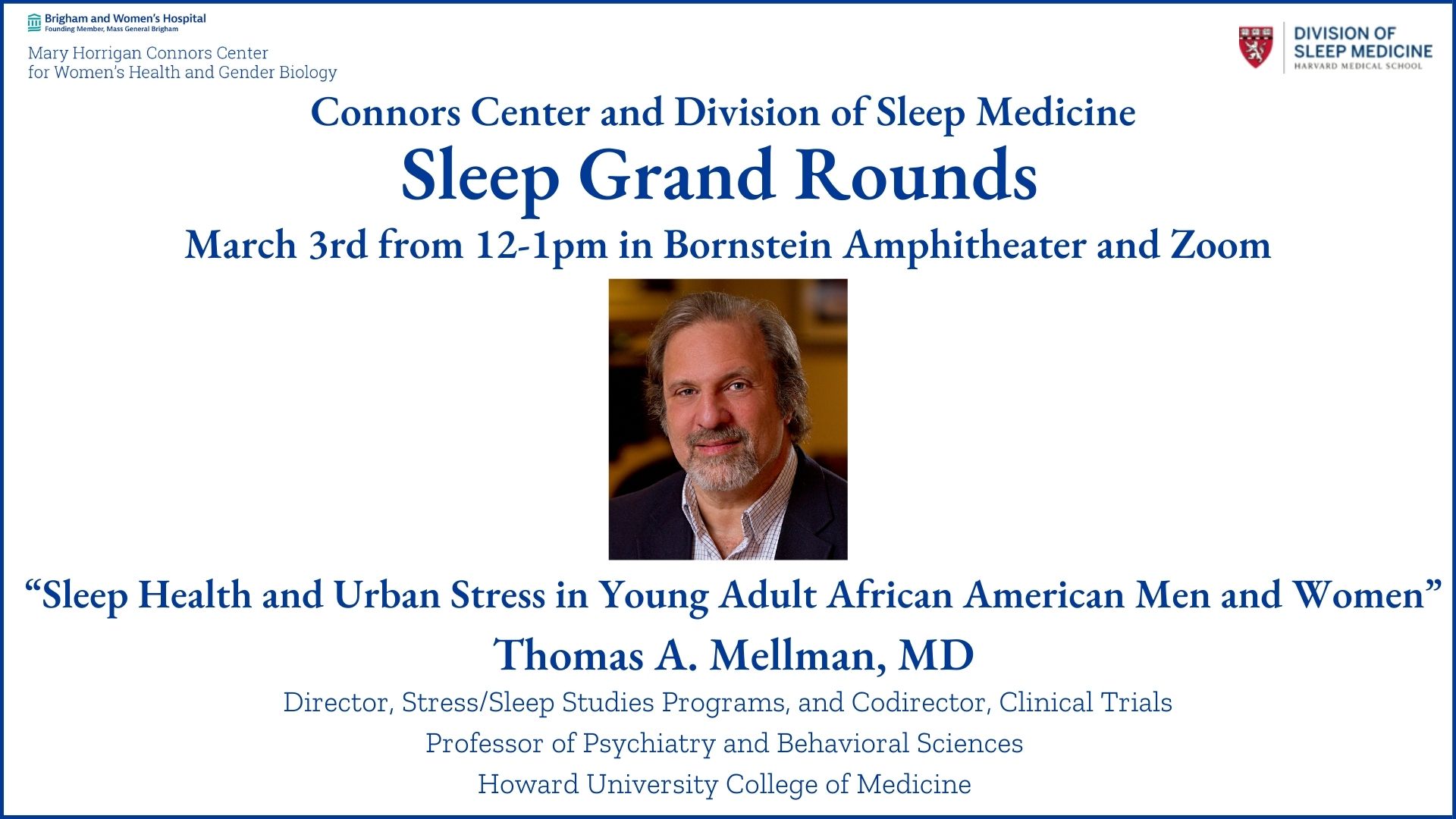Wednesday, February 19th, 2025 | 12:00-1:30pm | Virtual | Registration Required Join Here Cracking the…
The Connors Center 6th Annual WHISPR Symposium
The Mary Horrigan Connors Center for Women’s Health and Gender Biology hosted the 6th annual Women’s Health Interdisciplinary Stress Program of Research (WHISPR) Symposium and Awardee Presentation at Brigham and Women’s Hospital on Thursday, May 4th, 2023. Over 100 individuals registered to attend in person and virtually from the Connors Center, BWH, the MGB system, and the external community.
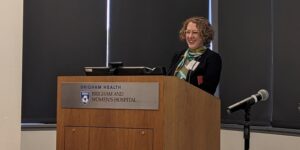
Watch the Recording Here
WHISPR aims to advance our understanding of how physiologic and psychological stress affect women’s health and disease by supporting pilot projects, facilitating interactions among WHISPR investigators and other stress researchers, and hosting an annual scientific symposium for the BWH academic community. Through the WHISPR program the Connors Center has awarded 10 early career investigators with yearlong awards and hosted 5 symposia to discuss stress and women’s health. The WHISPR Awards and Symposium are made possible through the Gretchen S Fish Fund for Women’s Health and Stress Research.
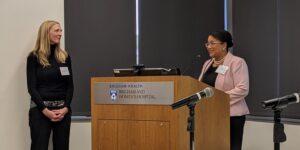
Cynthia Rogers, MD delivered the keynote address entitled “Addressing Social Determinants to Optimize Perinatal and Neonatal Well-Being.” Dr. Rogers is the Director of the Division of Child and Adolescent Psychiatry, and the Blanche F. Ittleson Professor of Psychiatry and Pediatrics at Washington University in St. Louis. Dr. Rogers co-directs the Washington University Neonatal Development Research (WUNDER) group, a multidisciplinary lab which uses multi-modal MRI to understand how poverty, racism, prematurity, and prenatal substance exposure affect the brain at birth, alter brain development across childhood, and relate to child psychiatric disorder. In her talk, Dr. Rogers discussed the intersection of health outcomes among pregnant people and infants with various health disparities driven by social and economic inequities, including how financial stability, environmental safety and infrastructure, education, food access, and care access for the mother can all factor into the health and well-being of neonatal development. Also discussed was the impact of structural racism and class inequality, their effects on mothers, and potential downstream outcomes on preterm birth disparities. These impacts culminate in neonatal brain development and perinatal psychosocial functioning changes that correlate with levels of adversity faced. Hadine Joffe, MD MS (Executive Director of the Connors Center) provided introductory remarks and Laura Holsen, PhD (Director of Research Training at the Connors Center) facilitated the Q&A session with Dr. Rogers.
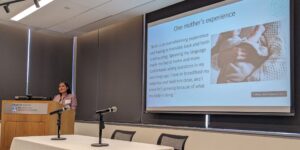
Sarbattama Sen, MD provided an overview and update of the Mama Sana Program, which aims to address striking disparities in lactation support and outcomes among Hispanic patients at BWH and empower mothers to achieve their perinatal goals. The program is composed of various modes of support including group classes, individual consultants and Spanish-speaking counselors, and follow-up phone calls and group classes postpartum. Dr. Sen is an Assistant Professor of Pediatrics at Harvard Medical School and a neonatologist at Brigham and Women’s Hospital. Cindy Liu, PhD (Director of Psychosocial Stress, Diversity, and Health at the Connors Center) provided introductory remarks.
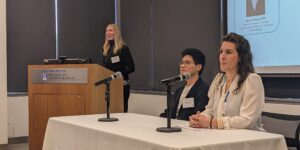
Following these talks the 2023 WHISPR Awardees were announced and provided an overview of their awarded projects. Irene Gonsalvez, MD is an Associate Psychiatrist in the Neuropsychiatry division at Brigham and Women’s Psychiatry Department and an Instructor at Harvard Medical School. She is also an Associate Researcher at the Women’s Hormones and Aging Research Program (WHARP). Dr. Gonsalvez presented “Role of oxytocin in stress response and mood disturbance in menopausal women”. Shanlin Ke, PhD is a postdoctoral research fellow at the Channing Division of Network Medicine at Brigham and Women’s Hospital. He presented “Revealing the interaction between Posttraumatic Stress Disorder and the gut microbiome in older women.” Laura Holsen, PhD introduced the awardees and facilitated the Q&A session with both awardees.
Thank you to all speakers, moderators, reviewers, and attendees for support and engaging with the important research funded by the Connors Center and making this event a success!

